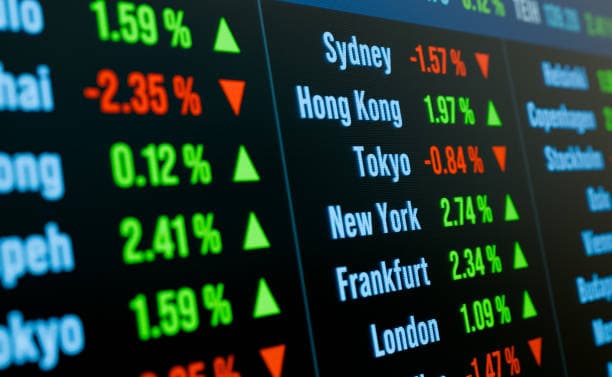The digital age has brought about a remarkable transformation in various sectors, and the financial markets are no exception. As we navigate through the intricacies of market dynamics and trading strategies, technology has emerged as a pivotal catalyst, reshaping the way we interact with financial market online. The advent of advanced tools and platforms has democratized access to trading opportunities, making it easier than ever for individuals to participate in the global financial ecosystem. Let’s explore how technology is revolutionizing the way we trade markets online, and the implications this has for both seasoned traders and newcomers alike.
The Rise of Online Trading Platforms
In the past, trading was predominantly the domain of large financial institutions and professional traders. However, the emergence of online trading platforms has leveled the playing field, allowing individual investors to access the same opportunities as their institutional counterparts. These platforms offer a user-friendly interface that simplifies the trading process, enabling users to execute trades with just a few clicks. The convenience and accessibility of these platforms have made market participation more inclusive, breaking down the barriers that once limited access to a select few.
The Role of Market Data and Analytics
Accurate and timely market data is crucial for making informed trading decisions. Technological advancements have made it possible to access real-time data and advanced analytics tools that provide insights into market trends and potential opportunities. Traders can now leverage sophisticated algorithms and machine learning models to analyze vast amounts of data, identifying patterns and making predictions that were previously unimaginable. This has not only improved the accuracy of trading decisions but also allowed for more strategic and data-driven approaches to market participation.
The Impact of Social Trading
Social trading is another area where technology has made a significant impact. Platforms that facilitate social trading allow users to follow and copy the trades of successful traders, democratizing access to expert knowledge and strategies. This has created a community-driven approach to trading, where novice traders can learn from the experiences of more seasoned participants. The social aspect of trading also fosters a sense of camaraderie and shared learning, which can be a valuable resource for those new to the market.
The Evolution of Trading Technologies
As technology continues to evolve, so too does the landscape of trading. The introduction of high-frequency trading algorithms has changed the speed at which trades are executed, with some transactions occurring in milliseconds. This has led to a more efficient market, where prices are more reflective of supply and demand dynamics. Additionally, the development of blockchain technology has the potential to revolutionize trading by offering a decentralized and secure method of recording transactions, which could reduce fraud and increase transparency in the market.
The Future of Trading: AI and Machine Learning
The future of trading is likely to be heavily influenced by artificial intelligence and machine learning. These technologies can analyze complex data sets and make predictions with a level of accuracy that surpasses human capabilities. As AI and machine learning become more integrated into trading platforms, we can expect to see even more sophisticated trading strategies and a greater emphasis on data-driven decision-making. This could lead to more efficient markets and potentially higher returns for traders who can leverage these technologies effectively.
The Importance of Regulation in a Technologically Advanced Market
While technology has undoubtedly enhanced the trading experience, it has also raised new regulatory challenges. As markets become more global and interconnected, regulators must keep pace with the rapid evolution of trading technologies to ensure fair and transparent markets. This includes addressing issues such as cybersecurity, data privacy, and the potential for market manipulation through advanced trading algorithms. Striking the right balance between innovation and regulation will be crucial in maintaining the integrity of financial markets in the digital age.
The Human Element in a Tech-Driven Trading World
Despite the significant role that technology plays in modern trading, the human element remains crucial. Emotional intelligence, risk management, and the ability to adapt to changing market conditions are skills that cannot be replaced by algorithms alone. Traders must continue to develop these skills alongside their technical knowledge to navigate the complex world of markets effectively. The synergy between human intuition and technological prowess will be key to success in the future of trading.
Conclusion
The revolution in trading brought about by technology is undeniable. From the democratization of market access to the sophisticated tools that empower data-driven decision-making, technology has transformed the way we trade markets online. As we look to the future, the continued integration of AI, machine learning, and other advanced technologies will undoubtedly shape the landscape of trading further. It is an exciting time for both traders and the financial industry as a whole, as we embrace the potential of technology to unlock new opportunities and enhance our understanding of the markets.

